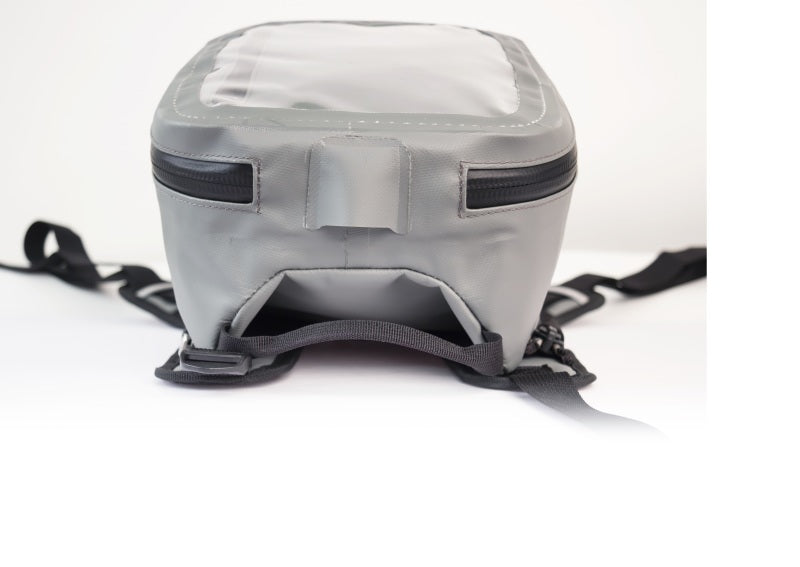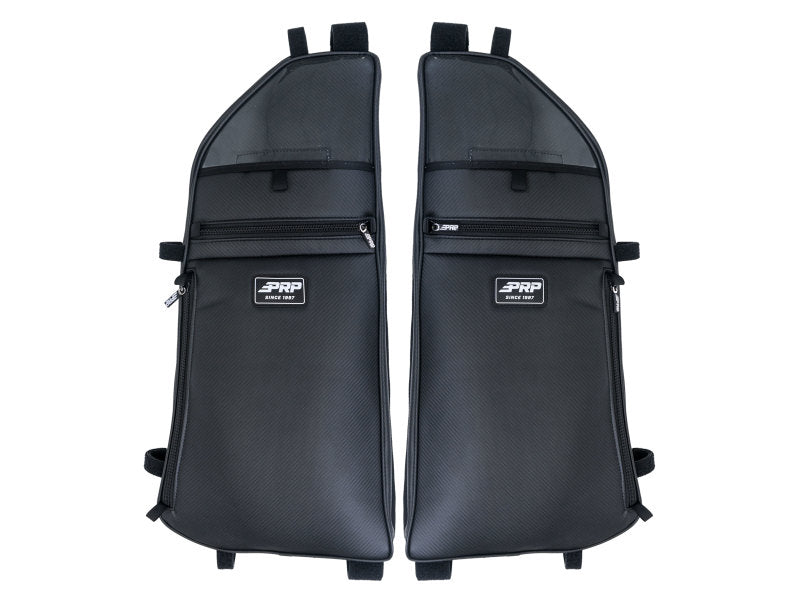Do you ever wonder how long your muffler will last? Well, you're not alone! In this article, we will explore the lifespan of mufflers and what factors can affect their durability. So, if you're curious about when you might need to replace your muffler, keep reading!
When it comes to mufflers, they don't last forever. Over time, mufflers naturally degrade due to various factors. Factors such as environmental conditions, driving habits, and even the presence of rust and corrosion can all play a role in how long your muffler will last.
By understanding these factors, you can take steps to ensure the longevity of your muffler and know when it's time for a replacement. So, let's dive in and discover the secrets behind the lifespan of mufflers!
How Mufflers Degrade
Mufflers slowly wear down over time, gradually losing their ability to muffle the thunderous roar of a car's engine. As an integral part of the exhaust system, mufflers are constantly exposed to extreme temperatures, corrosive gases, and road debris. These harsh conditions take a toll on the muffler, causing it to degrade over time.
The constant exposure to high temperatures can cause the internal components of the muffler to rust and deteriorate. The hot gases from the engine pass through the muffler, and as they cool down, moisture can accumulate inside. This moisture, combined with the corrosive gases present in the exhaust, can cause the muffler to develop rust and eventually holes. This not only affects the muffler's ability to muffle the sound, but it can also lead to leaks in the exhaust system, which can be harmful to the car's performance and emissions.
Furthermore, the muffler is also prone to damage from road debris. Rocks, gravel, and other objects on the road can hit the muffler, causing dents and scratches. These physical damages weaken the structure of the muffler and can accelerate its degradation. Over time, the combination of rust, holes, and physical damages can render the muffler ineffective in reducing the noise produced by the engine. It's important to regularly inspect and maintain the muffler to ensure its optimal performance and longevity.
Factors Affecting Lifespan
When properly maintained, mufflers can keep your car running smoothly and quietly for a considerable amount of time. However, the lifespan of a muffler can vary depending on several factors.
One of the main factors that can affect the lifespan of a muffler is the type of muffler itself. Different types of mufflers, such as chambered mufflers or straight-through mufflers, have different designs and materials that can impact their durability.
Additionally, how the muffler is used and the conditions it is exposed to can also play a role in its lifespan. For example, if you frequently drive on rough roads or in areas with a lot of salt or moisture, your muffler may degrade more quickly.
Another factor that can affect the lifespan of a muffler is the amount of noise and gas flow that it has to handle. Mufflers are designed to reduce noise by creating a series of chambers and baffles that help to reduce the sound waves produced by the engine. However, over time, these chambers and baffles can become worn or damaged, leading to increased noise levels.
Additionally, the flow of exhaust gas through the muffler can create pressure and heat, which can also contribute to its degradation. If the muffler is not able to handle the increased gas flow or pressure, it may become less efficient and have a shorter lifespan.
The lifespan of a muffler can vary depending on factors such as the type of muffler, the conditions it is exposed to, and the amount of noise and gas flow it has to handle.
By properly maintaining your muffler and being aware of these factors, you can help to extend its lifespan and ensure your car runs smoothly and quietly for as long as possible.
Signs of Wear and Tear
One indicator of wear and tear on a muffler is an increase in noise levels. As a muffler ages, it may develop small holes or cracks due to corrosion or damage from road debris. These openings can allow the sound waves produced by the combustion process in the engine to escape more easily, resulting in a louder muffler.
If you notice that your muffler is getting noisier than usual, it could be a sign that it is wearing out and may need to be replaced.
Another sign of wear and tear on a muffler is a decrease in its performance. A muffler plays a crucial role in reducing the noise produced by the engine, but it also helps with the proper functioning of the entire exhaust system. Over time, the internal components of the muffler may deteriorate, leading to a decrease in its ability to effectively dampen the noise and control the flow of exhaust gases.
This can result in reduced engine performance, decreased fuel efficiency, and even potential damage to other parts of the exhaust system. Therefore, if you experience any of these issues, it's important to have your muffler inspected and replaced if necessary to ensure the optimal functioning of your vehicle.
Maintenance Tips
To keep your muffler in top shape and avoid costly repairs, it's essential to follow these maintenance tips.
First and foremost, regularly inspect your muffler for any signs of damage or wear. Look for rust, holes, or loose connections. If you notice any issues, it's important to address them promptly to prevent further damage.
Additionally, make sure to clean your muffler regularly to remove any dirt or debris that may have accumulated. This will help to maintain proper airflow and reduce the risk of blockages.
Another important maintenance tip is to be mindful of how you drive. Aggressive driving, such as rapid acceleration or sudden braking, can put unnecessary strain on your muffler and reduce its lifespan. By driving more smoothly and avoiding excessive revving, you can prolong the life of your muffler.
Additionally, be cautious when driving over rough terrain or speed bumps, as this can cause damage to the muffler and its insulation.
Finally, it's recommended to have your muffler inspected and serviced by a professional regularly. They can check for any potential issues and ensure that your muffler is in proper working condition.
By following these maintenance tips, you can extend the lifespan of your muffler and reduce the need for costly repairs.
Average Lifespan
You can expect your muffler to serve you well for several years, effectively muffling the sound of your engine and releasing the exhaust fumes into the open air.
On average, a muffler can last anywhere from 5 to 7 years, depending on various factors such as the quality of the muffler, driving conditions, and maintenance. The lifespan of a muffler can also be influenced by the design and materials used in its construction.
Mufflers are designed to work by reducing the noise produced by your engine and directing the exhaust gases away from the vehicle. They're typically made from durable materials such as stainless steel or aluminum, which can withstand the heat and pressure generated by the exhaust system. However, over time, the constant exposure to high temperatures, moisture, and road debris can take a toll on the muffler, leading to corrosion and rust.
Regular maintenance, such as inspecting for any signs of damage or leaks, can help prolong the lifespan of your muffler. Additionally, driving habits, such as frequently driving on rough roads or in extreme weather conditions, can also impact the longevity of your muffler.
By taking proper care of your muffler and addressing any issues promptly, you can ensure that it continues to work effectively for the average lifespan of 5 to 7 years.
Quality and Durability
The high-quality materials and construction of a muffler ensure its durability and reliability, providing peace of mind for drivers. When it comes to the quality of a muffler, it's important to choose one that's made from strong and corrosion-resistant materials such as stainless steel or aluminized steel.
These materials are designed to withstand the harsh conditions of the exhaust system, including high temperatures and exposure to corrosive elements. Additionally, a high-quality muffler will have a well-designed internal structure, with multiple sound-deadening chambers that help to reduce noise and vibrations. This not only ensures a quieter ride for the driver and passengers but also helps to prevent damage to the muffler itself.
Durability is another key factor to consider when evaluating the lifespan of a muffler. A well-made muffler should be able to withstand the constant exposure to hot exhaust gases without deteriorating or developing leaks. It should also be resistant to impact and vibrations, which can occur during normal driving conditions.
By choosing a muffler that's known for its durability, drivers can have confidence that it'll last for a long time without requiring frequent replacements. Overall, the quality and durability of a muffler are crucial factors in determining its lifespan. Investing in a high-quality muffler made from durable materials and designed with sound-deadening chambers will not only ensure a quiet and comfortable ride but also save drivers from the hassle and expense of frequent muffler replacements.
Environmental Factors
Now that we've discussed the quality and durability of mufflers, let's dive into another important aspect that can affect their lifespan: environmental factors. Your muffler is constantly exposed to a variety of elements that can impact its performance and longevity.
One key factor is the presence of moisture in the air. Moisture can cause the metal components of your muffler to rust and corrode over time. This can weaken the structure of the muffler and lead to leaks or even complete failure. Additionally, if you live in an area with high humidity or frequent rain, the moisture in the air can also affect the fiberglass insulation inside the muffler. Over time, this insulation can become saturated, reducing its effectiveness in noise reduction and potentially causing damage to the muffler.
Another environmental factor to consider is the level of air pollution in your area. If you live in a highly polluted environment, such as a city with heavy traffic, the pollutants in the air can accelerate corrosion and deterioration of your muffler. The chemicals and gases in the air, such as sulfur, can react with the metal of the muffler, causing it to degrade at a faster rate. Regular exposure to these pollutants can significantly reduce the lifespan of your muffler.
While the quality and durability of a muffler are important factors in determining its lifespan, environmental factors also play a crucial role. Moisture in the air and air pollution can both contribute to the deterioration of your muffler over time. To maximize the lifespan of your muffler, it's important to consider these factors and take proper care of your vehicle's exhaust system.
Driving Habits
Imagine cruising down the open road, feeling the exhilaration of speed and freedom, while your driving habits unknowingly impact the lifespan of your vehicle's muffler.
Your driving habits play a significant role in how long your muffler will last. The muffler is designed to work efficiently under normal driving conditions, but aggressive driving can put unnecessary strain on it. Constantly revving your engine, accelerating quickly, and braking abruptly can cause excessive vibrations and stress on the muffler. This can lead to premature wear and tear, reducing its overall lifespan.
In addition to aggressive driving, the noise level produced by your vehicle can also affect the longevity of your muffler. The muffler's primary function is noise reduction, and it's designed to absorb and dissipate the sound waves created by your engine. However, if you frequently drive with a loud exhaust system, the muffler will have to work harder to reduce the noise. This constant strain can cause the internal components of the muffler to deteriorate faster, resulting in a shorter lifespan.
So, if you want to extend the life of your muffler, it's essential to adopt good driving habits, such as avoiding aggressive driving maneuvers and keeping your exhaust system within legal noise limits.
Impact of Rust and Corrosion
To ensure your muffler stands the test of time, you need to be aware of how rust and corrosion can silently eat away at its lifespan. Rust and corrosion are common enemies of mufflers, especially in regions where road salt is used during winter. When metal is exposed to moisture and salt, it becomes vulnerable to rusting and corroding.
The rust and corrosion can weaken the metal structure of the muffler, leading to holes and leaks. These holes can impact the muffler's ability to do its job effectively, causing a decrease in muffler work and potentially leading to louder exhaust noise and decreased fuel efficiency.
The impact of rust and corrosion is not only dependent on external factors but also on the muffler's design and material used. Some mufflers are more susceptible to rust and corrosion due to their design or the type of metal used. Stainless steel mufflers, for example, are generally more resistant to rust and corrosion compared to aluminized or plain steel mufflers.
Additionally, mufflers with better drainage systems and protective coatings can also have a longer lifespan. Regular inspection of your muffler and taking preventive measures such as applying anti-rust coatings or using rust-resistant materials during repairs can help extend its lifespan and ensure optimal performance.
By staying vigilant and addressing any signs of rust or corrosion promptly, you can prolong the life of your muffler and avoid costly repairs or replacements.
When to Replace
Knowing when it's time to replace your muffler can save you from potential headaches down the road. Mufflers, like any other automotive component, have a limited lifespan. While the exact duration may vary depending on factors such as driving conditions and maintenance, a general estimate is that mufflers last around 5 to 7 years.
However, this lifespan can be significantly reduced if your muffler is exposed to rust and corrosion. Rust and corrosion are common enemies of mufflers. Over time, moisture, road salt, and other environmental factors can cause the metal of your muffler to corrode. This corrosion weakens the structure of the muffler and can lead to holes or cracks in the pipe or end of the muffler.
If you notice any signs of rust or corrosion, such as flaking metal or discolored spots, it's essential to have your muffler inspected by a professional. Ignoring these signs and continuing to drive with a damaged muffler can result in further damage to your exhaust system and potentially costly repairs.
So, keep an eye out for any signs of rust or corrosion and be proactive in replacing your muffler when necessary to ensure the continued performance and longevity of your vehicle.
Conclusion
In conclusion, maintaining your muffler is crucial for its longevity. Regular inspection and addressing any signs of wear and tear can help extend its lifespan.
Factors such as environmental conditions and driving habits also play a significant role in determining how long your muffler will last. It's important to note that rust and corrosion can significantly impact the lifespan of your muffler, so taking preventive measures such as rust-proofing can be beneficial.
Lastly, knowing when to replace your muffler is essential to ensure optimal performance and to prevent any potential damage to your vehicle's exhaust system.
Overall, by staying proactive and taking care of your muffler, you can expect it to last for a considerable amount of time. Remember to schedule regular maintenance and address any issues promptly. By doing so, you can enjoy a quiet and efficient exhaust system for years to come.
So, take the necessary steps to maintain your muffler, and it'll continue to serve its purpose effectively, ensuring a smooth and enjoyable driving experience.




